|
When a sporting great is ‘in the Zone’ it’s an experience of pure athletic alchemy. All the doubts thrown up by the conscious mind disappear, allowing all the long years of practice to soar back out in a blissful moment of apparent magic. This is when things just work – indeed the outer world seems to cooperate with every inner whim. At extremes, time obliges by slowing down. Space can also flex as you become one with your equipment, your surroundings and even the entire universe. No matter how pressured the occasion or how huge the crowds, it’s usually a peaceful experience too, hence the spread of techniques like meditation to help sportspeople find this elusive nirvana when it matters. Over seven years of research for In The Zone I met hundreds of legends of everything from athletics to boxing, gymnastics to skydiving. For most, the secret is to find calm amid all the intensity. Yet there are exceptions, and the most high-profile of all comes from sailing. ‘They’ve made me angry and you don’t want to make me angry…’ These words, paraphrasing David Bruce Banner in 1970s television’s The Incredible Hulk, capture much of what makes the greatest sailor in Olympic history tick. Ben Ainslie is a rare example of a sportsman who thrives on getting mad and usually even. You’d imagine Denmark’s Jonas Høgh-Christensen might have known that. Six races into the Finn class of the 2012 Olympic sailing regatta, with Ainslie chasing a record fourth straight gold, the Dane had beaten him in every race. Then he ganged up with Dutchman Pieter-Jan Postma to force the home hero into a precautionary penalty turn. Big mistake. After Ainslie threatened to turn green, he began another stunning run for gold. Maybe Høgh-Christensen should have listened in on my chat with the Briton a month earlier… ‘Normally when I’m under pressure or I get angered by something, it seems to bring out the best in me,’ Ainslie told me. ‘I don’t necessarily know why that is. But it’s a good trait to have because that’s what often happens. For some people, if they get put off their natural stride they just fall apart. But anger works as a trigger for me. It just makes me want to do better or try harder and normally that’s the case.’ Ainslie first got ‘angry’ when he was herded to the back by Brazil’s Robert Scheidt in the penultimate race of the 1996 Olympics. Then something ‘clicked’ in the young debutant, who started flying as he seethed, gaining 15 places but falling short of gold – for the only time, as it turned out. Ainslie received death threats when he returned the favour four years later but ‘from then on the gloves were off…’ Anger management course? No thanks… it is Ainslie’s preferred route to the Zone. Competitive sailing is so tactical it is rarely about just getting as quickly as possible from A to B by sea, yet even this game of maritime chess doesn’t stop the magic. ‘That peak performance comes when everything comes together at the same time, when you’re really at one with the boat, the conditions and yourself,’ adds Ainslie. ‘It doesn’t happen often, but when it does it’s a great feeling. It’s definitely possible to get in the Zone in a tactical battle too. That’s when the training comes in and you sail the boat on autopilot because your mind is so focused on the tactical ramifications of what you need to do next. You might not sail at 100 per cent but you can be at a very high level even without thinking about it.' The Briton has already won the America’s Cup once, having sparked one of sport’s all-time great comebacks as tactician for Oracle Team USA in 2013. His home nation has never matched the feat in 173 years of attempts, despite its long-time claims of ‘ruling the waves’.
Ainslie has himself led British teams twice before without success but this week he is finally aiming to rectify that, skippering the Ineos-backed Britannia in a best-of-13 series against reigning champions Team New Zealand in Barcelona. How revved up is he already feeling at the prospect? Funnily enough Ainslie is known for his placid personality on dry land; it’s only the sea that fires him up. Yet he insists age and experience have blurred the edges between his Jekyll and Hyde. ‘When I was younger I was a bit of a hothead on the water,’ adds Ainslie, ‘but on land I was so shy I wouldn’t speak to anyone – partly because of the problems I had at school, where I was bullied. That had a marked effect on me: I felt I needed to prove myself and it made me fiercely determined to be successful. As I’ve got older the two personalities have merged. Now I’m more confident on land and I’m calmer on the water, which helps.’ After decades of sailing solo, Ainslie acknowledges the biggest challenge in the team environment is getting everyone to peak at the same time. ‘It’s no good an individual trying to do one thing on this own ten times better than the rest,’ he adds. ‘It’s a collective output so it’s about getting everyone working together to a similar level where they can all operate. Then you start getting somewhere.’ One final piece of advice for Team New Zealand: try not to make them angry.
0 Comments
The loss of YouTube legend Ken Block earlier this year in a snowmobile accident is still being felt by motorsport and stunt fans all over the world.
I was once lucky enough to interview Block at the Goodwood Festival of Speed to ask about what went through his mind at the many peak moments he enjoyed in such an intense career. The below exchange has never been published before and I hope as it serves as yet another worthy tribute to a great man… Block gained fame by ‘hooning’ rally cars around the world’s most unsuitable locations in his gymkhana videos. His final creations are true works of art but pushing these limits inevitably means you go beyond them too. It doesn’t take much to go out of anyone’s comfort zone on four wheels but the likes of Block spend their entire careers chasing such moments – to the point where they can almost seem pre-ordained or self-inflicted. He was about to recce a WRC special stage in Portugal in 2011 when he was tipped just over the edge. ‘There was a delay and one of the local drivers asked if someone had crashed,’ smiled Block. ‘When I said I didn’t know he said, “Someone goes off big on this stage every year.” I was like: “What? He hexed me!” Then I thought: “I’m going to crash? No way…” So I start the stage and I’m driving really well. I’d just done some really good testing in Mexico so I’m feeling good. Then I went slightly wide on a corner, got onto the marbles and the rear end just kicked out and flipped something. I rolled three-and-a-half times, two of which were in mid-air. ‘So we were in the air for a long time but in the middle of that I was so mad, thinking: “That guy hexed me.” When something like that happens you know there’s a big impact coming. Then it’s just like, “Oh shit…” You just say, “Uh oh…” But time really does slow down. I had time to go through all those thought processes before I thought, “Aarrrggh…” It’s a unique feeling being in a racing car. I wish more people could experience it because it’s very cool…’ Convinced? Me neither. This feeling of time slowing down is a classic report in ‘everyday’ road crashes too, another sign of the human brain’s ability to work at its absolute limit when it most matters. Understandably, most of us don’t feel any strong urge to check that out for ourselves. The payback for those who routinely push to the limit in their day jobs is when the same phenomenon occurs at calmer, happier times. It was in competition rather than gymkhana that Block most frequently found the balance of factors necessary to make it to the ultimate driving bliss. ‘Being in the Zone is a serene thing when everything aligns,’ Block told me. ‘It feels amazing and happens when you’re comfortable with everything, so it is hard when you’re in a new environment as it’s about getting used to things. But when you get enough time and practice in the car and you can just focus on what you’re doing it’s great. Then you have that feeling of total comfort and everything just happens in a subconscious state. There are days when you just can’t be beaten. ‘It can happen in a shakedown but you feel it most when there’s a baseline to compare against. I don’t feel it very often in the World Rally Championship because I’m not so familiar with the car and the events. But back home in America I won the 100 Acre Wood Rally seven times. There you get in, you’re winning and you have that feeling. Then you build on it with confidence and comfort with the car. ‘You don’t really focus in on that feeling or know what it is until you compete at a high level. If you’re playing football with your friends you’re not going to feel it because you’re not at the level of intensity and competition to really experience it. It needs the right situation and the right amount of pressure to be in that moment. That’s when the feeling for me as a car driver is unlike any feeling I get anywhere else.’ Thank you Ken, and happy hooning in the great gymkhana in the sky. It was a treat to visit the studios of Premier League Preview earlier this week to talk about the climax of the 2021-2022 season. Focusing on Manchester City's match away at West Ham on Sunday, we talked about how Pep Guardiola calls on the power of belief to turn in such an impressive string of strong performances when it matters.
The London Stadium has been a happy ground for Manchester City in recent years but this time the pressure is magnified as they aim to get over the line in the title race - potentially with a makeshift defence after a run of injuries. West Ham also head into the match on the back of a European semi-final disappointment of their own so they will be looking for a high at their last home game of the season. Make no mistake: when you get this close to a title it's ALL about the mind. But if either team needs any more inspiration they can think back to all the peak performances at the very same stadium 10 years ago at the 2012 Olympics - as described by the likes of Jessica Ennis-Hill and Usain Bolt in the pages of In The Zone: How Champions Think and Win Big. You can watch the final cut today on BT Sport at 6pm or Sky Sports at 7pm. The Olympics start tomorrow and elite athletes all over the world are dreaming big. For five long years they have dedicated their entire existence to Tokyo, regularly picturing the view as their national anthem sings out to a packed arena.
This is the justification for decades of focus on a single target: every early morning, every mile run through wind, hail and snow, every vomit-inducing gym session. All the pain will make sense when they reach the top of the world. Right? Pity few enjoy this golden pay-off. The rest will fail – very publicly – in full view of their family, friends, nation and planet. That is guaranteed to hurt more than anything they’ve ever felt before. “To fail to make a goal is one thing. To do it in front of two billion people is another. It’s heart-wrenching. When you work so hard and sacrifice so much… I literally felt my soul was being shattered.” These are the words of Missy Franklin: the darling of the Aquatics Centre at the 2012 London Olympics, this ever-smiling 17-year-old American swam to four gold medals and charmed fans with her happy-go-lucky personality. Cut to Rio in 2016 and it was a different story: she failed to reach the final of either of her individual events. Ouch. When I meet Franklin years later the humiliation remains etched in her mind. “Throughout my life everything made sense to me: you work really hard, you make the sacrifices, you do everything you can, then you get faster and achieve your goals,” says Franklin. “That’s why Rio made no sense. I was in my best shape ever, I had my best trainer… and I had the most disappointing meet of my life. “How does that work? It showed me the importance of mentality. Physically I might have been incredibly healthy, but mentally and emotionally I was in terrible health. That makes a huge difference. At 17 I was new; I didn’t have expectations. But now people knew what I did, and I started listening to their expectations. That was so hard, because before the Games started I felt I’d already failed. Even if I took home three gold medals it still wouldn’t be good enough: ‘Oh well, you got four in London…’ “I always swim my best when I’m enjoying myself, but that took all the fun away. I felt so heavy going in; so much pressure. They were the most miserable eight days of my life. It broke my heart to feel like that, because I was at my second Olympics and I wanted to enjoy every bit of the experience. But I’d rather have been anywhere else.” Of course Franklin was not alone. The full scale of the mental health epidemic facing sport has only become apparent in recent years, as athletes come out with stories they may once have kept hidden. It’s not even limited to ‘losers’; the greats have their own demons to face, both before and after any fleeting euphoric high. Franklin didn’t leave Rio empty-handed either, but she returned home with ‘only’ one gold medal – earned for helping her relay team through the heats; she wasn’t entrusted with a place for the final. This would be most people’s pride and joy but it serves only as a reminder of the week Missy’s world fell apart. She used to smile routinely before every race – partly to generate the positive attitude essential to performance, partly to remind herself ‘fun’ was key to everything she did. Now the smiles dried up. The gloom was briefly lifted when she arrived home to find a sea of paper hearts on her front yard. They were covered in messages from local kids saying why Missy was their role model and why they still loved her. She began ‘hysterically sobbing’ out of gratitude to the people who stayed by her side. But it would not be the last time tears flowed as the magnitude of her failure hit home. “The low went on for a while as I dealt with the confusion and pain,” admits Franklin. “I was so humbled by the whole experience, and it takes a long, long time. After that I went through bilateral shoulder surgery so I had to take time away from the water. I’d always been good at swimming, and it always worked out well, so it was easy to say: ‘My identity isn’t based in this.’ Now, for the first time, swimming was taken away – and I realised how much of my self-worth I put into the sport. “When it doesn’t work out, how does that change your view of yourself? I had to take time to sit down with different people and work through: ‘Who am I? What do I value about myself?’ That was unrelated to what I did in the pool, but it takes a long time to grasp that. Now my relationship with swimming will never be the same. So it’s about accepting that; and that non-judgmental attitude towards myself is the most important thing I’ve been working on.” It’s easy to see how an Olympian’s self-image can become so intertwined with what they achieve. Elite athletes live in a bubble where everything is measured, from every training session to every final. That’s fine when things are going swimmingly. When they’re not, self-esteem can sink as fast as their results. Sometimes it takes time away – enforced or otherwise – to regain any perspective. In Franklin’s case her background studying psychology at the University of California gave her some backup. But there is no more brutally effective teacher than life itself. We all find this out at some point, but few of us honestly know how to treat triumph and disaster just the same. That’s why we look to learn from anyone who has already endured hardship and come out stronger on the other side. This is where Missy Franklin has found her silver lining. “My faith is important and one thing that stuck with me for the entire journey was that with God your pain has a purpose,” smiles Franklin. “There are times when you think: ‘This will never be worth it. Why am I having to deal with this? Will I ever get out?’ But everything I went through was moulding me into the woman I was supposed to become. It’s crazy to see how this has changed me. I’m a totally different person to what I was eight, four or two years ago; I’ve learned so much and I feel so strong. “I now realise one of the main reasons we go through what we do is so we can help other people. Now I can talk to friends, athletes or strangers experiencing something similar, and share how I got through it. To see their gratitude and appreciation makes everything worth it.” Still just 26 years old, Franklin made her official retirement from swimming late in 2018. She has since married fellow swimmer Hayes Johnson (and is now known as Missy Franklin Johnson) with their first child due next month. She is as bubbly as ever – but armed with uncommon wisdom for one so young. As such she can expect a full inbox over the coming weeks as her fellow ‘failures’ make their own tearful return from Japan. But why stop there? Let’s face it: we all fail. Often. And it hurts every time. Indeed this modern life of screens has taken things to a new level. It means we can all ingest a daily overdose of apparent ‘good times’ not just courtesy of the rich and famous, but our own friends and family. That’s all we ever show in public too, but Franklin knows it’s when things are falling apart that we really need help. “The main thing I can do is be open about my failures,” she adds. “As elite athletes we feel we have to be composed, confident and tough all the time; especially with social media, people only post the best aspects of their lives. People go on and think: ‘My life isn’t anything like that.’ But nobody’s life is like that. You’re only seeing the good, and nobody’s life is only the good. “We have to recognise it’s not real. If we want to follow an athlete or celebrity, fine, but it’s crucial to realise their lives are not exciting and wonderful all the time. This feeling that we have to constantly compare ourselves is dangerous. Comparison and judgement are two of the most harmful practices a human can do, yet it’s what social media is all about. And what we see can often be so skewed and wrong. It’s OK to be exactly who we are and not this ideal self we post to everyone else. “When we are vulnerable and share the hard times; the bad, the shame, guilt, anxiety and depression, that’s when we impact people. Lots of athletes say to me: ‘I had no idea you experienced anxiety attacks before you raced. I have anxiety attacks, but I can’t believe YOU had them!’ That’s what they can relate to, and where they really need help. We don’t need to help someone get through a good time, right?” Huge thanks this month go to hurling ace Gearóid Hegarty, who was the man of the match as his Limerick team triumphed in the 2020 All Ireland final against Waterford - see video below.
While later speaking to the Irish press, Hegarty said: "I read a book, In the Zone, by Clyde Brolin, and it's all about flow and getting into flow... "I got a bit of a slagging after the match because I came into the dressing-room and knew I was after having a really good game, but genuinely didn't know what I scored. So I got out my phone and texted my girlfriend who was at home watching it and she said, 'yeah, you got seven points'. "I was really in the zone. I can hardly remember some parts of the game. I know it's a saying, but it was like an out of body experience at times. It didn't even feel like it was me." Newspapers who published the quotes included the Irish Sun, Irish Mirror, Irish Examiner, Irish Times, Independent and Sunday World. Mind blown. Thank you Gearóid, now officially my favourite ever sportsperson... Given the events of the last few months it’s no surprise that anxiety and other mental health problems are skyrocketing all over the world. Yet for those who feel helpless to fight back against this relentless diet of fear and gloom, help is at hand in the form of a new book due out in January 2021: How to Master Your Monkey Mind.
The Monkey Mind is how Chinese Buddhists have long described the nagging voice in our heads that flits from thought to thought, like a monkey swinging from tree to tree in the jungle. It is also the speciality of this book’s author, a very wise man who it has been my pleasure to get to know over the last ten years: Don MacPherson. Based on the outskirts of the British city of Bath, MacPherson (aka ‘the Monkey Whisperer’) is a mind coach and hypnotherapist who routinely hosts young hopefuls in sports ranging from rugby to snooker – including champions in everything from Formula 1 to Wimbledon. There’s no purple cloak or swinging watch but there is a reclining chair where he puts on soothing music and sets out to tame their Monkeys and put their subconscious minds back on track. Even so, rather than implanting sinister ways of thinking into vulnerable heads, MacPherson insists hypnotherapists tend to be called upon to rectify the effects of a life of hypnosis from another source entirely. ‘Ask my wife Jane to play tennis and she will politely decline,’ MacPherson told me when I spoke to him for In The Zone. ‘She’ll say: “I can’t play tennis! I don’t have an eye for the ball or any hand-eye coordination.” But if you gently pry as to why she holds such a view, she’ll say it must be true because: “Everybody has always told me I am hopeless at tennis.” ‘If you dare to go any further you might enquire who this “everybody” is. You may know a few: mothers, fathers, grandparents, friends, teachers, vicars, politicians, policemen, lawyers, doctors. They are Jane’s “everybody” and probably yours: all are hypnotists who were in action from her first attempt to hit a ball. No doubt she missed or mishit it, at which point I doubt she received much encouragement, more like “Oh dear, it doesn’t look like little Jane has much of an eye for a ball, shame...” from a well-meaning parent who didn’t realise the effect their negative comments can have on a young child hanging onto their every word. ‘Who was next? Other friends, all hypnotists joining in, compounding and confirming Jane is no good at tennis. Unless somebody interrupts this hypnotic trance, she is well on the way to believing it. Finally, whenever tennis is brought up, you will hear her unequivocally state: “I am hopeless at tennis”. This is as close as you can get to self-hypnosis but she has already been a victim of “accidental hypnosis”. It is now so deeply rooted in her subconscious that to shift it she would need a mind expert to try to reprogram her into “can-do” Jane.’ I’m sure we all have similar examples of pursuits we long ago abandoned as far beyond our puny capabilities – whether it’s sport, art, music, languages, maths or anything else. If we were to work our way back through time there would no doubt be a similar cast list of hypnotists. But few of them realise they were ever in our lives at all, just as we live in blissful ignorance of the similar effects we’ve had on countless, faceless others. We now live lives so complex in terms of interactions, from good old face-to-face contact to television, internet and social media, we face a daily onslaught of more swaying watches than Switzerland in an earthquake. Some situations can make people especially vulnerable to hypnosis, according to MacPherson: ‘You are in your Doctor’s surgery, about to hear the results of some tests,’ he adds. ‘Your conscious mind freezes whenever something important, exciting or scary is happening to you. At this point your GP is a full-blown hypnotist because they now have direct access to your subconscious mind, the real you. So they had better be very careful what they say… because you’re about to become another victim of accidental hypnosis. ‘If it’s bad news your first question is likely to be: “How long have I got?” If the reply is “six months” it is uncanny how accurate this forecast turns out to be. Have the patients been hypnotised, their brains programmed to believe it must be so without question? If the GP clicked his fingers just before giving the results would the patient suddenly cluck like a chicken or sing an Elvis song if they suggested it?’ Something tells me the whole world is under the effects of similar mass hypnosis right now, quivering with fear and clucking like chickens at the slightest suggestion from our all-powerful rulers. Yet before we start blaming anyone else we have to remember there is only one true leading light in our production: ourselves. No matter what anyone says it is only when our subconscious minds choose to believe it that a plot twist is written in stone. To quote parents everywhere: ‘If we ignore it, it will go away.’ The problem is that our deepest selves are not easy to control, no matter if we’re trying to ascertain whether or not to believe a news story, whether or not to believe we can hit a tennis ball over a net or even whether or not to believe we will live to see another Christmas. Now MacPherson is promising to give us everything we need to take back control, thanks to ‘ten simple tools to tune your brain.’ These are likely to include many of the mind secrets he has used with the stars over the years, everything from meditation and visualisation to ‘Zen Breathing’ which slows the heart rate with a simple deep breath, exhaling for longer than we inhale. This is the one toolbox we all need right now. So if you are heartily sick of 2020 and you fancy starting 2021 afresh I can only urge you to pre-order MacPherson’s book and prepare to start mastering your Monkey Mind. Thank you very much to Ted Kravitz for having me on Sky Sports F1 earlier this month to talk about Lewis Hamilton’s recent visits to the Zone.
Hamilton is in the form of his life with six wins out of the last eight races – a run that gives him a chance of equalling Michael Schumacher’s all-time Formula 1 record of 91 grand prix wins this weekend in Russia. Even considering the continued dominance of Mercedes that is a mighty achievement, not least in a year when he has had plenty of off-track distractions, as Ted illustrated in his insightful feature. Somehow Lewis has managed to channel everything into generating ever greater performances – and it reached a peak at last month’s Spanish GP… ‘I was just in a daze out there,’ he smiled afterwards. ‘We all try for perfection and it’s not always easy to deliver like that but today I didn’t realise it was the last lap, I was going to keep going. In my mind, I was like a horse with blinkers on. Today I was fully in the zone and it is right up there with some of the best races I’ve felt I’ve done. ‘There is immense pressure on all of us to perform weekend in, weekend out and the goal is always to chase for perfection and be in that zone. But today it was a clear zone. I don’t even know how to really get into that zone or what helps you get into that space but honestly I felt fantastic in the car. I was in a perfect zone and that’s the zone that I dream of being in.’ Sound familiar? Understanding this state has been my life’s work for 20 years writing In The Zone and Overdrive – during which I’ve been lucky to speak to Lewis about this magical subject a few times. As far back as 2007, a few weeks ahead of his Formula 1 debut, when I brought up Ayrton Senna’s famous 1988 pole lap at Monaco he described it as ‘something else – beyond the Zone. That’s heaven…’ It sounds like Lewis is now increasingly finding this heaven too. To the outsider this doesn’t always make for the most entertaining sport - we need two or more competitors to find the Zone for that, as in the recent golden era of men's tennis - but that’s hardly his fault. And I very much doubt he cares. Any more visits to this ‘heaven’ and Lewis Hamilton will officially be Formula 1’s all-time number one. It is always a joy to be contacted by people via this website, and recently I was delighted to hear from 18-year-old Canadian climber Madison Fischer (pictured in action above).
Hailing from Ontario, Fischer was introduced to climbing at her local gym at the age of 11. She was soon hooked, winning the Youth Nationals within three years and now representing Canada in Open competitions all over the world. Climbing isn't Fischer's only speciality, however. She is also a keen student of everything to do with the sporting mind, and she has already written an impressive series of thought-provoking posts on her website. Her blog features insights into everything from what it takes to be a champion to body image to the considerable benefits of giving up social media - and it comes highly recommended. One of her latest articles compares the chances of making it to the top in sport to the odds of winning the race to be selected as an astronaut. Is it realistic? No. Is it worth going for it? Of course. But the only way to pull it off is to ignore all the doubters - many of them well-meaning family and friends - along the way. This is what success is really about in any field, and Fischer rightly concludes that the highest echelons are populated by what she beautifully terms this 'ignorant few' who are able to cast a blind eye to all logic and good sense... simply in order to chase their dreams. Something tells me Madison Fischer is well on her way to joining them. American psychologist Abraham Maslow spent his life exploring what makes us human beings tick. His quest is most famous for his ‘hierarchy of needs’, a simple diagram of a pyramid (see above) that categorises our every requirement and craving in order of importance.
The bottom layer features raw essentials including food, water, sleep and sex – all of which apply to every animal on the planet. The next level is ‘safety’: health, employment, shelter and general resources. Then comes ‘love and belonging’ such as family and friends. Only once those basics are in place can we start to exploit the areas that set humans apart, notably ‘self-esteem’, plus achievements and respect for and by others. Rising even higher we can explore the aesthetics of our environment, stimulating ourselves intellectually and fulfilling our need for harmony, order and beauty. The top of the pyramid is reserved for ‘self-actualisation’, where we ditch all prejudice and find morality, creativity, spontaneity plus an ability to solve problems. This is where humans achieve our full potential and chase our dreams, life becomes playful yet honest, individual yet integrated, honourable yet effortless, rich yet simple. This summit is where we are most likely to find ‘peak experiences’, those profound moments of love, happiness or insight where we feel most alive and connected with the universe. This is as good as it gets. The Zone. Given that we have to build up a solid foundation of all the other layers first, it’s no surprise that the Zone is so hard to reach and most experiences are so fleeting. Much of the world’s population is stuck in a daily battle for the essentials for survival. It is possible to peak in such circumstances, but it’s at the level of an animal. Maslow was adamant it shouldn’t be like this. The top should be the norm not the exception: not about having something ‘extra’, rather having nothing taken away. He reckoned our ultimate goal is to attain personal growth; indeed this very process is the path to true happiness. Yet to reach these higher peaks, he understood certain conditions must be in place, such as the freedom to seek new knowledge and to express ourselves without constraint. That rules out dictatorships and other subtler forms of oppression. Over the past three months billions more of us have been dragged back down the pyramid to level two: safety. Last month’s blog details the futility of this endeavour, yet the world’s media and governments continue to insist this is a rational way to live our lives. Still convinced they’re right? If so are you prepared to give up everything it really means to be a human being? Something tells me it's time to rise back up... |
AuthorClyde Brolin spent over a decade working in F1 before moving on to the wider world of sport - all in a bid to discover the untapped power of the human mind. Archives
October 2024
Categories
All
|
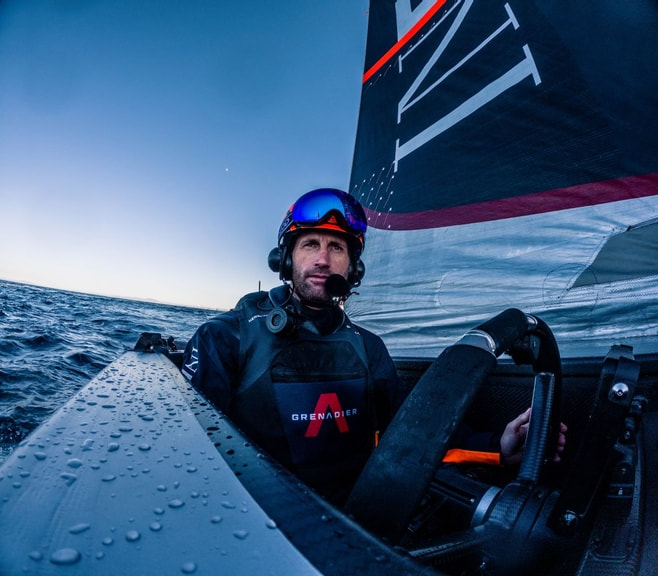
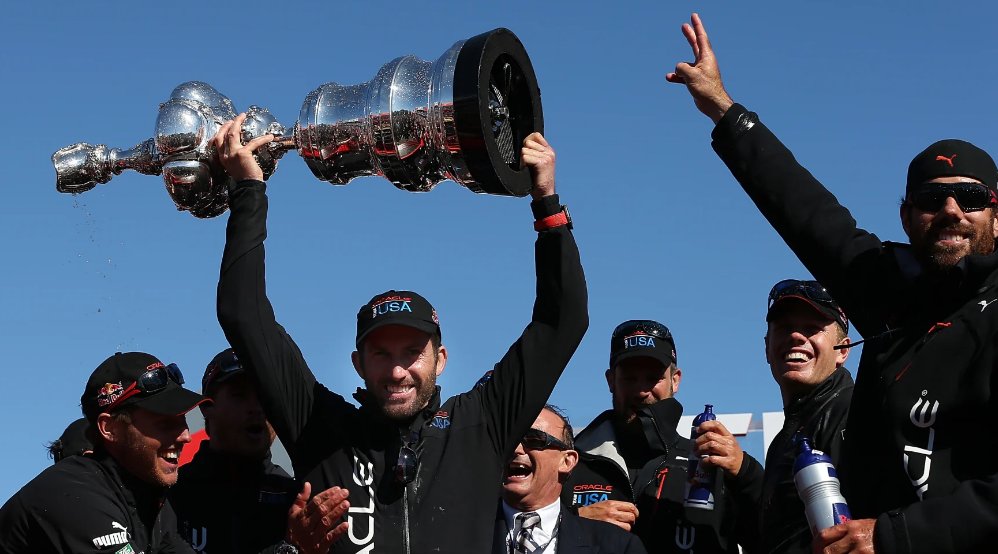
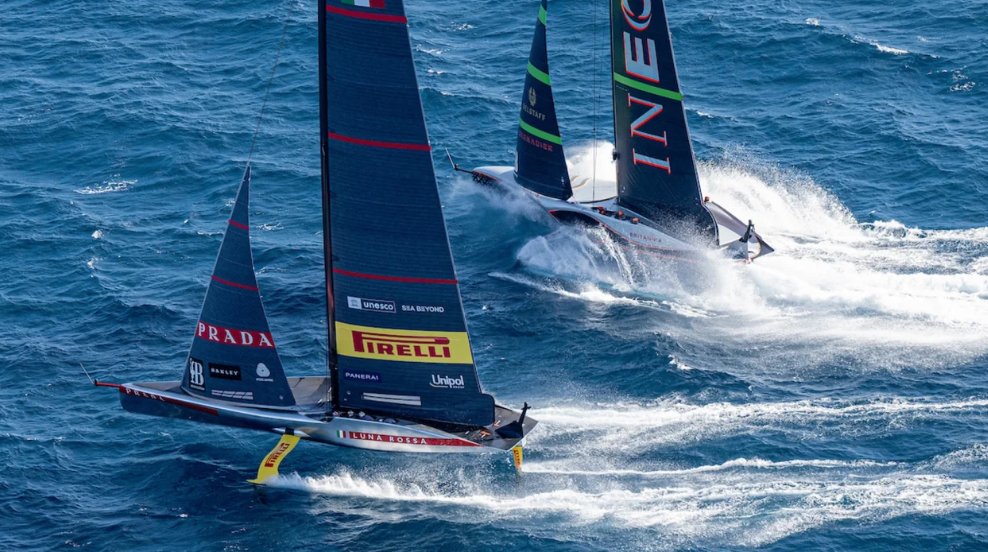










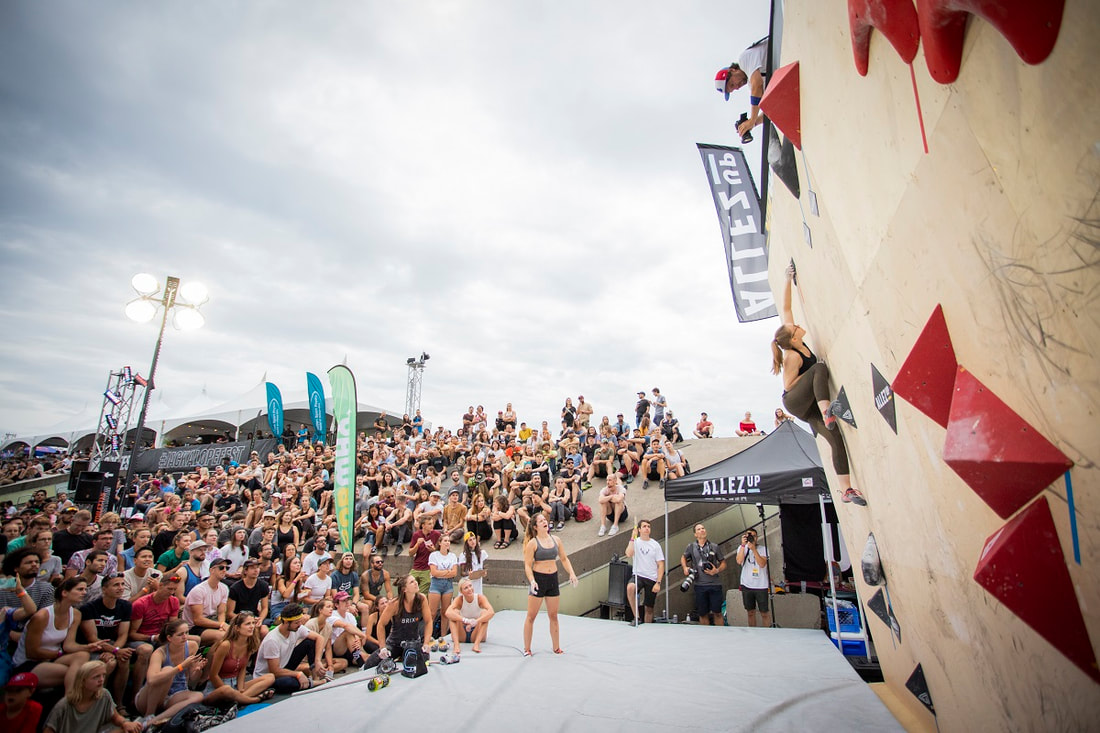
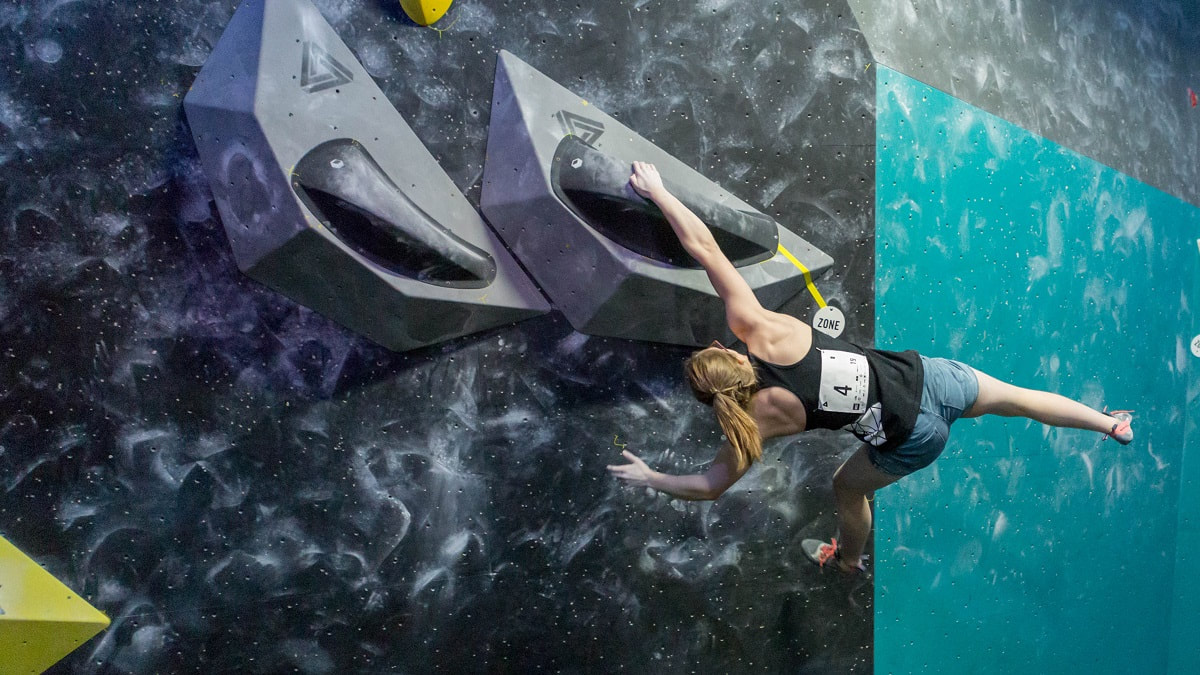
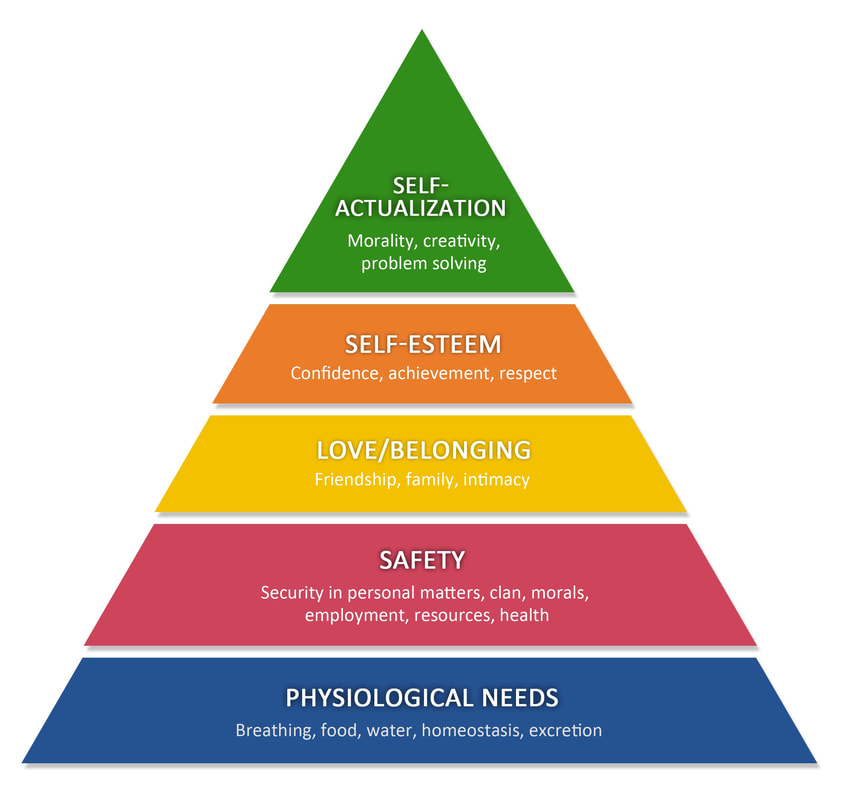
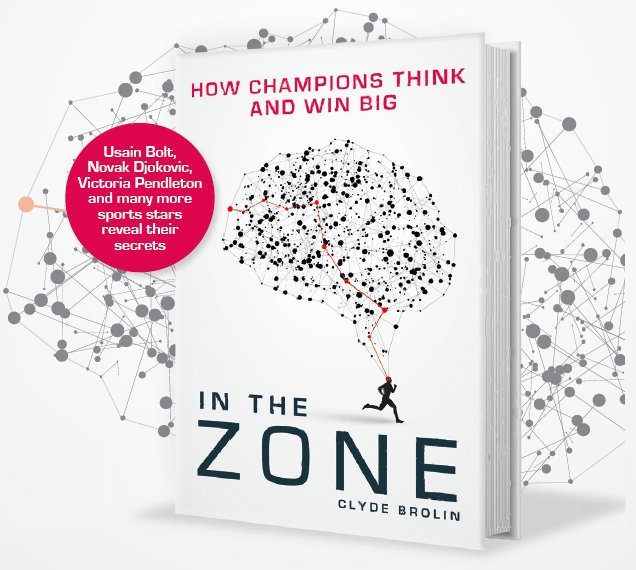
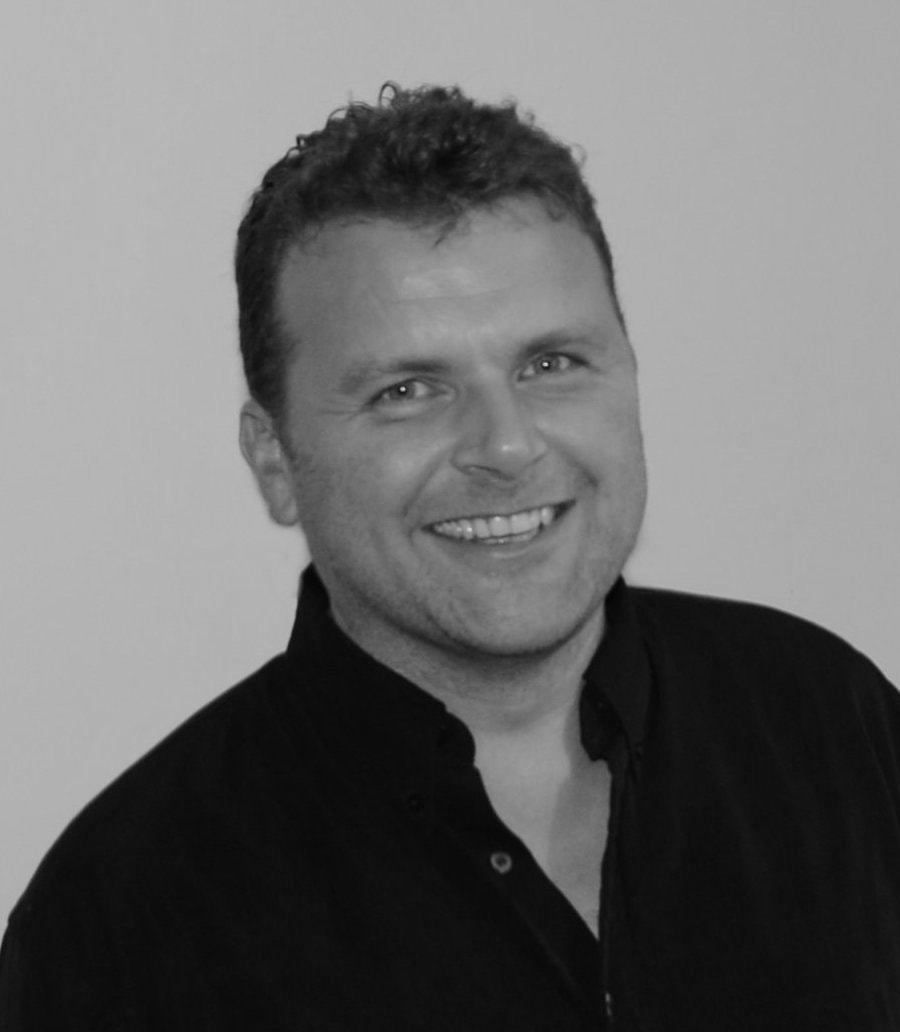
 RSS Feed
RSS Feed

